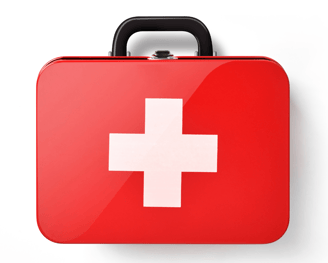Bleeding After Anal Sex: Understanding What's Normal
.
ANAL SEX
12/8/202310 min read


Causes of Bleeding After Anal Intercourse
Exploring Potential Physical Factors Leading to Bleeding
Sometimes after having anal sex, you might notice some bleeding. Don't worry, mild spotting and minor bleeding are actually pretty common and there are a few reasons why it happen. Sometimes, small tears can cause pain. One big reason is that the tissues around your anal area are really sensitive and can get hurt easily, leading to anal fissures or hemorrhoids around the anus. When engaging in sexual practices involving the anus, there is a risk of causing tears or irritation to the tissues, leading to hemorrhoids or postcoital bleeding.
Another reason for bleeding after anal sex is if you didn't use enough lube, which can lead to hemorrhoids and spotting around the anus and cervix. Lube helps the anal tissue move smoothly and reduces the chances of anal fissures, tearing, or irritation in people's butts. So, if you didn't use enough lube during intercourse, that could be why you're seeing some postcoital bleeding from the cervix or anal tissue, possibly due to anal fissures. It's also important to remember that everyone's body, including the cervix and butt, is different, so what might cause bleeding for one person, such as anal fissures, might not cause it for another.
If a person is experiencing bleeding after anal sex and it doesn't stop or happens frequently, it's important to talk to a doctor just to make sure everything's okay. But don't stress too much! It's totally normal for people to need some time to heal after any kind of sex, and it's okay for a person to take a break until things feel better. And always remember, using plenty of lube and going slow can help make sure the person stays comfortable and safe during anal sex.
Discussing the Role of Anal Tears and Fissures
Anal tears and fissures in a person are often responsible for post-coital bleeding. These small cuts or tears in the lining of the anus can occur due to friction or trauma during anal intercourse. The presence of these tears can lead to discomfort and bleeding, especially during bowel movements.
Highlighting the Impact of Excessive Friction During Anal Intercourse
Excessive friction during anal intercourse can also result in bleeding. The delicate nature of the rectal tissues makes them susceptible to damage when subjected to vigorous or rough penetration. This friction can cause abrasions and micro-tears, leading to bleeding after intercourse.
In some cases, certain medical conditions such as hemorrhoids or inflammatory bowel disease (IBD) can exacerbate the risk of bleeding after anal sex. Hemorrhoids are swollen veins in the rectum that can bleed when irritated, while IBD, including conditions like Crohn's disease and ulcerative colitis, can cause inflammation and ulcers in the digestive tract, increasing susceptibility to bleeding.
It's important for individuals experiencing post-anal sex bleeding to seek medical evaluation. While minor instances of bleeding may resolve on their own with proper care and rest, persistent or heavy bleeding should be promptly addressed by a healthcare professional.
Preventing and Managing Anal Bleeding
Safe Practices for Anal Intercourse
Advocating for open communication and consent is crucial before engaging in anal intercourse. It's important to stress the use of appropriate lubrication to minimize friction and reduce the risk of tears in the delicate anal tissue. Discussing the value of gradual penetration and relaxation techniques can significantly contribute to a more comfortable experience, reducing the likelihood of anal bleeding.


Importance of Lubrication and Relaxation
Emphasizing the role of lubricants in preventing tears and discomfort during anal intercourse is essential. Proper lubrication reduces friction, thereby decreasing the chances of developing anal fissures or experiencing itching in the anal canal. Furthermore, promoting relaxation techniques such as deep breathing or external massage can help reduce muscle tension, making penetration smoother and less likely to cause trauma to the anal tissue.


First Aid for Minor Bleeding
When minor bleeding occurs after anal intercourse, it's important to take immediate steps to manage it effectively. Gentle cleansing with mild soap and water can help keep the area clean while applying gentle pressure on the affected area can aid in stopping the bleeding. However, if bleeding persists or is recurrent, seeking medical advice promptly is crucial to address any underlying issues such as persistent anal fissures or other concerns related to anal tissue health.


When to Seek Medical Attention
for Anal Sex Bleeding
Treatments for Rectal Bleeding
Seeking medical attention becomes crucial if bleeding after anal sex persists. Medical interventions are available to address persistent bleeding, ensuring proper healing and prevention of complications. It's essential to explore potential treatment options for anal tears or hemorrhoids as these conditions can cause bleeding after anal intercourse.
Professional medical assessment plays a pivotal role in determining appropriate treatments for rectal bleeding. Healthcare providers may recommend various treatment approaches based on the underlying cause of the bleeding. These may include topical medications, dietary modifications, or surgical procedures tailored to individual needs.
In cases of persistent rectal bleeding following anal sex, it is advisable to consult with a healthcare professional promptly. Delaying medical evaluation can potentially exacerbate the condition and lead to further complications. Seeking timely medical attention ensures that the appropriate treatment plan is initiated, promoting effective resolution of the issue.
Addressing rectal bleeding through medical interventions is vital in managing discomfort and preventing potential health risks. By seeking timely medical attention, individuals experiencing post-coital anal bleeding can access specialized care aimed at addressing the root cause of the issue. This proactive approach facilitates effective management and promotes overall well-being.
Medical treatments for rectal bleeding aim to alleviate symptoms and promote healing while addressing any underlying conditions contributing to the issue. Through professional assessment and personalized treatment plans, individuals can receive comprehensive care tailored to their specific needs. This empowers them to address post-anal sex bleeding effectively under expert guidance
Emotional Impact of Bleeding After Anal Intercourse
Addressing Fears and Anxiety
Acknowledging emotional responses to post-anal sex bleeding is crucial. It's natural to feel anxious or fearful when experiencing unexpected bleeding after anal intercourse. Many individuals may experience extreme pain, which can exacerbate these emotional reactions.
Providing strategies for managing anxiety and fears is essential. Encouraging individuals to seek support from healthcare professionals or counselors can aid in coping with the emotional impact of post-anal sex bleeding. Practicing relaxation techniques such as deep breathing or mindfulness exercises can help alleviate anxiety.
Encouraging open dialogue with partners about concerns is vital. Creating a safe space for discussing fears and anxieties regarding post-anal sex bleeding can strengthen the relationship and provide mutual support. Effective communication can foster understanding and empathy between partners.


Supporting Your Partner Through Post-Anal Sex Bleeding
Ways to Offer Emotional Support
When your partner experiences post-anal sex bleeding, it's crucial to provide emotional support. Listen attentively to their concerns and offer reassurance. Encourage them to express their feelings openly without fear of judgment...
Importance of Empathy
Empathy plays a vital role in supporting your partner through this experience. Try to understand their emotions and reassure them that you are there for them. Acknowledge the distress they may be feeling and offer comfort without minimizing their concerns.
Open Communication Is Key
Create a safe space for open communication within your relationship. Encourage your partner to share any worries or anxieties they may have regarding postcoital bleeding. Reassure them that their well-being is a top priority, and that you are willing to address any concerns together.
Providing Reassurance
Assure your partner that post-anal sex bleeding is not uncommon and can often be managed with proper care. Offer support in seeking medical advice if necessary, emphasizing that addressing any health issue is a shared responsibility within the relationship.
Demonstrating Supportive Behaviors
Engage in supportive actions such as accompanying your partner to medical appointments if they wish, or researching reputable sources together to understand the causes and potential solutions for post-anal sex bleeding. This collaborative approach can strengthen your bond while addressing the issue effectively.
Respecting Personal Boundaries
Respect your partner's need for privacy and personal space while also being available for support when needed. It's essential to strike a balance between being present for them and respecting their individual boundaries during this sensitive time.
Validating Your Partner's Feelings
Let your partner know that their feelings are valid, regardless of the cause or severity of the bleeding after anal intercourse. This validation can provide immense comfort and reassurance during a potentially distressing experience.
By offering unwavering emotional support, understanding, open communication, and reassurance within the relationship, you can help ease your partner's anxiety surrounding post-anal sex bleeding.
Risks and Benefits of Engaging in Anal Play
Weighing Pleasure Against Potential Harm
Engaging in anal intercourse can offer pleasure, but it's crucial for individuals to assess their comfort levels with such activities. Prioritizing personal well-being over pleasure is essential, and individuals should make informed decisions regarding their sexual activities.
Consent is pivotal when partaking in any sexual activity, including anal play. Mutual consent is non-negotiable, and it's vital to establish and respect boundaries within intimate relationships. Ongoing communication about consent ensures that both partners are comfortable and respected.
Recognizing the Importance of Consent
Mutual consent should be at the core of any sexual activity, including anal play. It's imperative for individuals to understand the necessity of respecting boundaries within intimate relationships. Open and ongoing communication about consent fosters a safe and respectful environment for all parties involved.
When engaging in anal play, it's important to weigh the potential risks against the benefits derived from such activities. While it can bring pleasure, individuals must prioritize their personal well-being over momentary enjoyment. Informed decision-making empowers individuals to make choices that align with their values and comfort levels.
Understanding one's own comfort levels with anal intercourse is crucial before engaging in such activities. Each individual has unique preferences and boundaries, so it's essential to communicate openly with partners about what feels comfortable and enjoyable. Prioritizing personal well-being ensures that pleasure is not achieved at the expense of physical or emotional harm.
Prioritizing personal well-being doesn't diminish the importance of pleasure; instead, it emphasizes a holistic approach to sexual activities. By making informed decisions based on individual comfort levels and values, individuals can engage in anal play while safeguarding their physical and emotional health. This balanced approach allows for pleasurable experiences within safe boundaries.
Recovering from an Episode of Bleeding
After Anal Sex
Physical Healing Process
The natural healing process for anal tissues is essential. When the delicate anal tissues experience trauma, allowing sufficient time for recovery is crucial. Factors such as the severity of the bleeding and individual healing capabilities can influence the timeline for complete physical healing.
It's important to understand that the body has its way of healing after experiencing trauma, including bleeding after anal sex. The tissues in the anal area need time to repair and regenerate. Rushing this process can lead to prolonged discomfort and potential complications. Patience is key in allowing the body to heal naturally.
Every individual's healing timeline may vary based on factors such as overall health, any pre-existing conditions, and the extent of trauma experienced during anal intercourse. It's vital not to compare one's recovery timeline with others, as each person's body responds differently to trauma.


Resuming Sexual Activity Safely
Gradually reintroducing sexual activities after bleeding has ceased is crucial for a safe recovery process. Rushing back into sexual activity can potentially aggravate the already sensitive tissues, leading to further complications and delayed healing.
Patience and sensitivity towards physical recovery are paramount when considering resuming sexual activities. Communication with one's partner about concerns, fears, and boundaries regarding intimacy post-recovery is essential for a healthy and supportive relationship dynamic.
Openly discussing concerns about pain or discomfort during sexual activity post-recovery can help partners navigate intimacy safely. It allows both individuals to understand each other's needs, ensuring a considerate approach towards resuming sexual activities without causing further physical strain or emotional distress.


Conclusion
You've learned about the potential causes of rectal bleeding after anal sex, how to assess its severity, and ways to prevent and manage it. Remember, communication and consent are key in any sexual activity, including anal play. If you or your partner experience bleeding after anal intercourse, don't hesitate to seek medical attention. It's essential to prioritize your health and well-being.
Take care of yourselves and each other, and remember that seeking help is a sign of strength, not weakness. Keep the lines of communication open with your partner, and don't be afraid to have honest conversations about boundaries, discomfort, and any concerns that may arise. Stay informed, stay safe, and prioritize your overall well-being above all else.
Frequently Asked Questions
What should I do if I'm experiencing bleeding after anal sex?
If you experience bleeding after anal sex, it's essential to remain calm. Clean the area gently and avoid further irritation. Refrain from any sexual activity until the bleeding stops. If the bleeding persists, seek medical attention promptly.
When should you see a doctor if you're experiencing bleeding after anal sex?
You should consult a doctor immediately if the bleeding is heavy, prolonged, or accompanied by severe pain or dizziness. If you notice persistent bleeding after anal sex, it's crucial to seek professional medical advice without delay.
Why am I bleeding after anal sex?
Bleeding after anal sex can occur due to various reasons such as tears in the rectal lining, hemorrhoids, or infections. It's essential to understand that this issue is common and can often be managed with proper care and treatment.
How to avoid anal bleeding after anal sex?
To prevent anal bleeding post-intercourse, ensure adequate lubrication and communicate openly with your partner about comfort levels. Start slowly and use plenty of water-based lubricant during penetration. Practicing relaxation techniques may help reduce tension in the muscles around the anus.
How to stop bleeding after sex?
To stop bleeding after anal sex, it's important to avoid further irritation of the area. Gently clean the affected area with mild soap and warm water. Refrain from engaging in any sexual activity until the bleeding has completely stopped.


